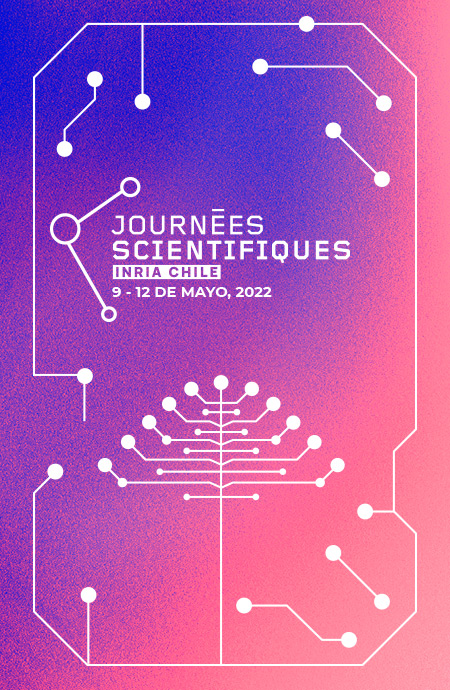



Pablo Marquet is a professor of Ecology at the Pontificia Universidad Católica de Chile and a researcher at the Institute of Ecology and Biodiversity (IEB Chile). Trained as an ecologist, he has worked in interdisciplinary collaboration with physicists, mathematicians and social scientists to address questions in different systems, from ecological to social. He has devoted most of his research to searching for the general principles underlying the dynamic structures of ecological systems using different theoretical approaches and models such as metapopulation and macroecological models. Lately, he has concentrated on the integration of different theories in ecology, climate change, and the rise of social complexity and innovations in simple human groups.
Pablo is the keynote speaker on the third day of the Inria Chile Journées Scientifiques 2022. In his presentation, he will offer a general description of how biodiversity and climate change interact and the role that biodiversity solutions plays in confronting climate change and addressing the sustainable development goals (SDGs). In addition, he will show an example for the Chilean case and discuss where AI could help foster mitigation and adaptation in the context of biodiversity solutions to climate.
The role of Digital Sciences is essential to enable us to support both mitigation and adaptation to climate change. For instance, it can generate predictions of how species distributions might change under global warming, and how ecosystem processes and species interactions would be affected. In the latter, AI methods are very relevant to infer networks of interaction between species.
The generation of integrated models, where it is essential to visualize possible transformation scenarios that combine social and economic aspects with ecological and climatic aspects. These models are crucial to support decision-making at local government levels and regional strategies to deal with the climate and biodiversity crisis.
Certainly. One of the tools that we have available to intensify mitigation and adaptation are nature-based solutions, which emphasize how we can promote the role that ecosystems and productive systems have in fixing carbon. This happens by changing the way we do agriculture, livestock, aquaculture and forestry. Here, AI may be a great ally in the creation of automatic measurement systems and in the identification of priority areas to implement changes.
This is essential. The great challenges we face as a society and civilization are transversal and cover diverse disciplinary areas. If we do not promote interdisciplinary collaboration and strengthen transdiscipline -which implies co-construction of knowledge-, we will not be able to face these challenges. The biodiversity and climate crisis is a biological, climatic and social crisis in which atmospheric physicists, mathematicians and computational scientists play a key role towards its solution.